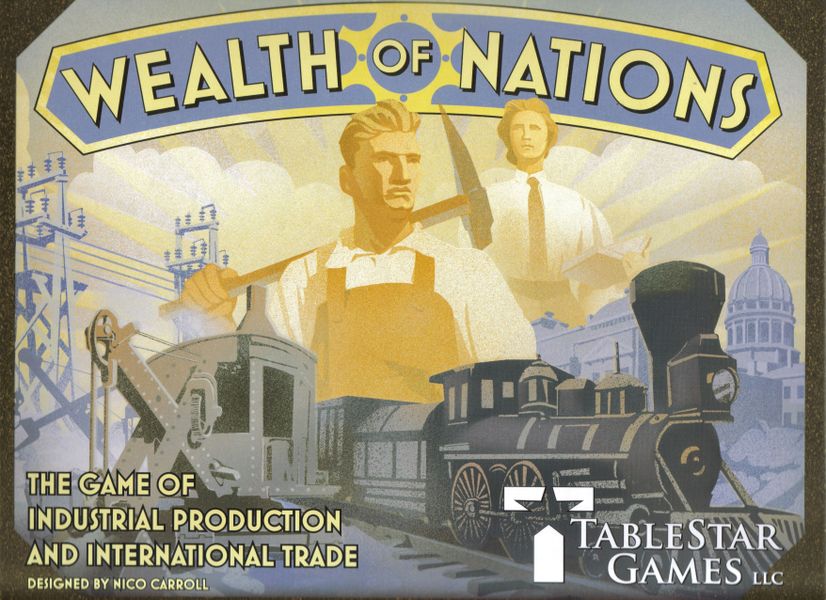Wealth of Nations (2008) Board Game
Wealth of Nations is a board game designed by Nico Carroll and published by TableStar Games in in 2008. The game is categorized under economic, industry/manufacturing, negotiation, and territory building genres. The game revolves around commodity speculation, loans, market dynamics, tile placement, and trading mechanics.
Game Components of Wealth of Nations
How To Setup Wealth of Nations
To set up the game, each player selects a nation board and places it on the table. Each player starts with a set amount of money and initial resources. The market board is set up with the necessary tracks and tokens. Industry cards are shuffled and dealt to players based on the game’s rules. The game also includes setting up the initial market prices and ensuring all players have the necessary components to begin.
Gameplay Mechanics and Game Objective
Player Experience
In Wealth of Nations, players experience a deep dive into classical economic theory, managing industries, trading resources, and navigating market cycles. The game requires strategic planning, as players must balance their own economic growth with the need to trade with other players. This creates a paradoxical dynamic where players must help their rivals to some degree in order to sustain their own income. However, the gameplay can feel repetitive, with similar turn-to-turn decisions, and the game is notably long, lasting around 210 minutes.
Pros
Cons
Personal Thoughts on Wealth of Nations
Wealth of Nations is a game that respects economic theory more than it entertains. It is ideal for those with a strong interest in economics or strategy, particularly those who appreciate the intricacies of market dynamics. While it lacks the excitement and variety of other games like Brass or Power Grid, it stands out as a unique educational tool for understanding classical economics. If you’re looking for a game to teach you about real-life economic principles, Wealth of Nations is an excellent choice, but if you’re seeking a more thrilling gaming experience, you might want to look elsewhere.
We are supported by our audience. When you purchase through links on our site, we may earn an affiliate commission, at no extra cost for you. Learn more.

